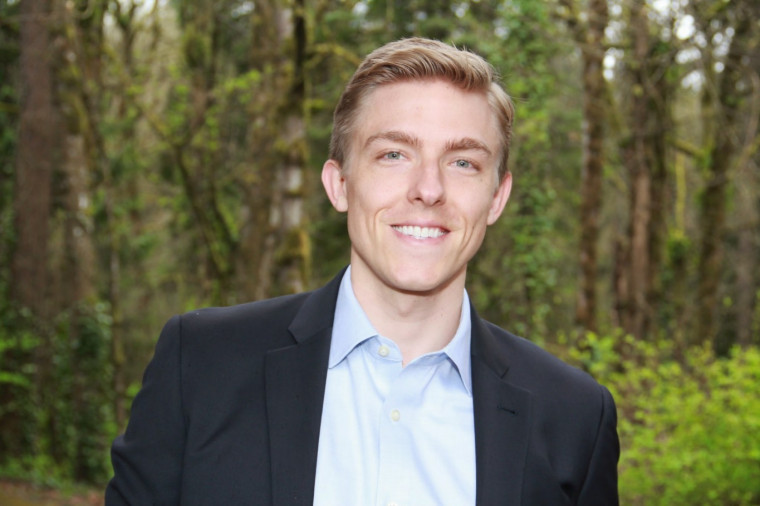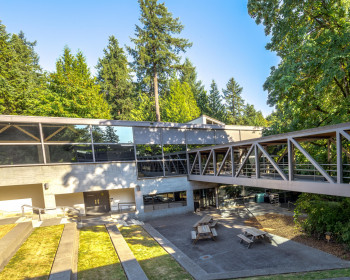Greenlight shines on recent alum, William McLaren
Open gallery

Our continuing “greenlight” series shines on recent Lewis & Clark law school alum, William McLaren, who is currently clerking for the Honorable Magistrate Judge, Paul Papak, at the U.S. District Court for the District of Oregon. Next September, William transfers for another one-year term to another federal judge, Michael McShane. We reached out to William to hear about his clerkship and his path to law…
William focused on environmental science and chemistry as an undergrad at University of California, Riverside. He filled us in on his decision to go to law school and his experience at Lewis & Clark:
“Speaking generally, I have always enjoyed social policy-focused concepts rather than the more technical areas of my prior studies. At one point, I learned that there are areas of law dealing with environmental compliance, that lawyers play large roles in natural resource disputes and transactions, and that there are legal means to protect biodiversity and ecosystems—something that is plain as day to me now but was an epiphany to my younger self. That was the tipping point.
A quick study of ideal schools showed Lewis & Clark had everything I could ask for, and the concept of putting down the pipette and picking up the pen became all-consuming.
Professor Erin Ryan’s Natural Resources course made a big impact on me. The survey of topics really solidified the original resolve that led me to law school in the first place. I became a little distracted and disillusioned at times with the thought that I had entered a field not for me. I realized after graduation that this field is what I make it, and I like that thought.”
William described how his current position is sharpening his analytic and editing skills:
“In my current position as a law clerk, I am assigned half of my judge’s docket and I deal primarily with dispositive motions as they arise. The types of cases that appear before the court run the gamut, from fraud to environmental to civil rights violations to contract disputes. I resolve conflicts and write opinions that hopefully solve legal contentions between the parties and convey the judge’s interpretation of matters before him.
The judge tempers my writing by challenging my analytic weaknesses. He also guides me with his expertise on the subject matter. My work is also subjected to a fine-toothed comb to ensure its accuracy and integrity. Writing for a scary-smart judge is as rewarding as it is nerve-wracking. Luckily, the judge I work for laughs at me only briefly when I submit an opinion containing typos.
Working as a judicial clerk also sharpens me as a generalist, and the constant flow of diverse subjects ensures I am never bored. As a side effect of that, writing during my off-time on topics that I find interesting, like environmental law, is actually fairly enjoyable.”
In fact, William has two articles-on Endangered Species Act vicarious liability and Concentrated Animal Feeding Operations deregulation- in the pipeline for publication in Lewis & Clark’s Environmental Law journal and Michigan State University’s environmental law journal, respectively. He also reports that a paper on management practices in the Salton Sea that he wrote for Professor Ryan’s Natural Resources law course was just accepted for publication in U.C. Hastings’ environmental law journal next summer. Apparently Professor Ryan told him “this paper has publication potential” - and she was right!
More Environmental, Natural Resources, & Energy Law Stories
Environmental, Natural Resources, and Energy Law is located in Wood Hall on the Law Campus.
MSC: 51
email elaw@lclark.edu
voice 503-768-6649
Environmental, Natural Resources, and Energy Law
Lewis & Clark Law School
10101 S. Terwilliger Boulevard MSC 51
Portland OR 97219

